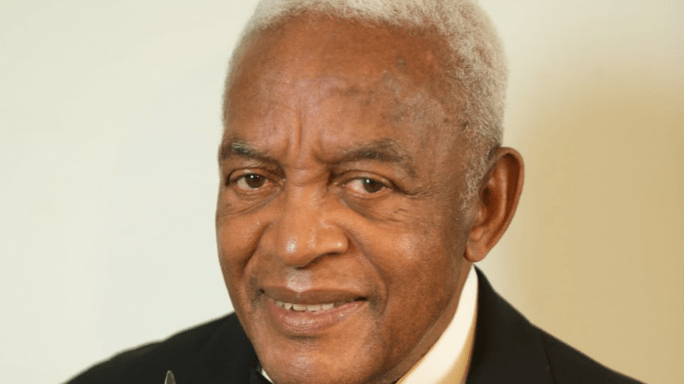
Irving Burgie, perhaps best known for writing the popular song Day-O, has died at the age of 95 from complications of heart failure, according to KCUR. The Prime Minister of Barbados, Mia Mottley, announced Burgie’s death this past Saturday, November 30.
While Burgie was born in the U.S., his mother was from Barbados, and he wrote the national anthem of that country, according to Variety. The Prime Minister called for a moment of silence for Burgie, as reported in Barbados Today.
Burgie wrote much significant calypso music and he sold 100 million records, according to his website. The film Beetlejuice, with Michael Keaton, featured Day-O (The Banana Boat Song), sung by Harry Belafonte, for whom Burgie wrote many songs. According to Burgie’s website, Day-O was his most successful piece of music and it was written for Belafonte.
Burgie was inducted into the Songwriters Hall of Fame in 2007, according to his website. “Being honored is never a bad thing,” as he said in The Jamaica Gleaner. “It feels great that people still admire what I have done.”
A few years back, Burgie said in the Daily News that he had plans for more work, including “starting a music program for school children, and making a musical film he’d like superstar singer Rihanna to star in. ”
Here’s what you need to know:
1. Irving Burgie Was Born in Brooklyn
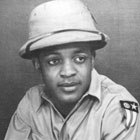
Burgie websiteBurgie on furlough in India
According to his website, Burgie was born in Brooklyn’s Bedford Stuyvesant neighborhood in 1924. He joined the U.S. Army and served in an all-Black battalion and, as his website says, was stationed in 1943 in the China-Burma Indian theater of World War II.
It was at this time that he became interested in music, as it says on his website. According to NPR, Burgie helped to build a road in North Burma. Another soldier taught Burgie the basics of music. “Their unit also built a chapel,” says NPR, “and Burgie sang in the choir. When the chapel got a new organ, Burgie kept the old one in his tent and used it to learn to play chords.”
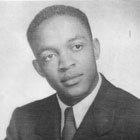
Burgie websiteBurgie at Juilliard
After the war, with the support of the G.I. Bill, he attended Juilliard School of Music and also the University of Arizona, and the University of Southern California, where he majored in voice, according to The Jamaica Gleaner.
2. He Got His Musical Start in Chicago’s Blue Angel
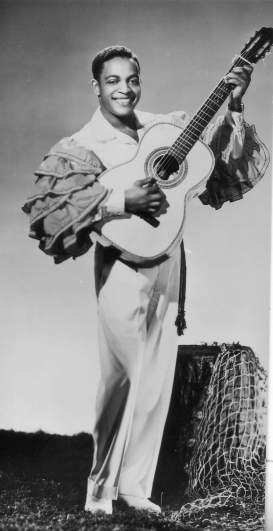
Burgie websiteBurgie at the Blue Angel
Burgie began his musical career in 1953 performing as a singer-guitarist at the Blue Angel, a nightclub in Chicago, according to his website.
Burgie wrote the lyrics and music for the 1963 off-Broadway show Ballad for Bimshire, which starred Ossie Davis. Burgie, under the name Lord Burgess, has performed in venues such as the Art Institute of Chicago, as well as Town Hall and Carnegie Hall, in New York.
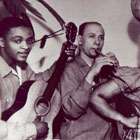
Burgie websiteBurgie at the Village Vanguard
He also performed at the legendary Village Vanguard, a music club in New York City’s Greenwich Village in 1954, according to his website.
Over his career, Burgie, in addition to his collaborations with Harry Belafonte, worked with musicians including Jimmy Buffett, Chuck Berry, and Sam Cooke, according to Barbados Today.
3. Burgie Met Harry Belafonte and the Rest is Musical History
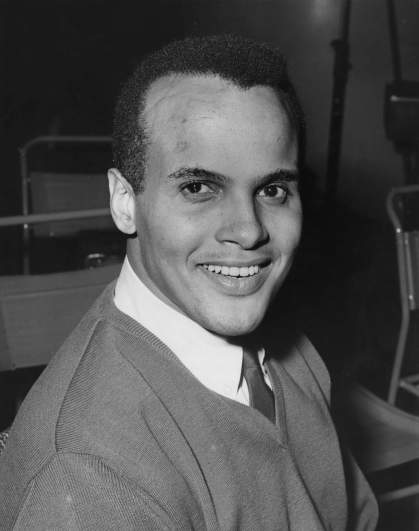
GettyHarry Belafonte, circa 1960.
Burgie has said that much of his music has roots in the folk music of the Caribbean. He met Harry Belafonte and the two forge a musical powerhouse.
Burgie composed 8 of the 11 songs on Harry Belafonte’s Calypso album, including Day-O, as Burgie says on his website. Belafonte’s Calypso album became the first LP in history to sell one million units (1956), according to the website. The album was Billboard’s #1 for 32 weeks.
Burgie collaborated with Belafonte on a number of songs. Burgie wrote Island in the Sun, for the film, which also starred Harry Belafonte. Another Burgie song, Jamaica Farewell, became Belafonte’s theme song. Burgie wrote upwards of 34 songs for Harry Belafonte, as it says on Burgie’s website.
4. How a Song of the Century Found Its Way into a Hit Movie
On Irving Burgie’s website, he says that Day-O was named the song of the century at the Annual Sunshine awards. And then it went on to become almost synonymous with a very popular movie.
According to Pitchfork, sometime in the mid to late 1980s, David Geffen called Harry Belafonte, the singer who had popularized Day-O and asked him if he would agree to have the song be in the dark comedy. Belafonte was interested. “I never had a request like that before,” says Belafonte in Pitchfork. “We talked briefly. I liked the idea of Beetlejuice. I liked him. And I agreed to do it.”
Calypso music is heard throughout the film often in subtle ways. But anyone who sees Beetlejuice, directed by Tim Burton, will always remember the Day-O scene.
Day-O was also used in advertisements and even served as an alarm to wake up astronauts in space, according to the BBC.
5. Burgie Gave Us More than His Music
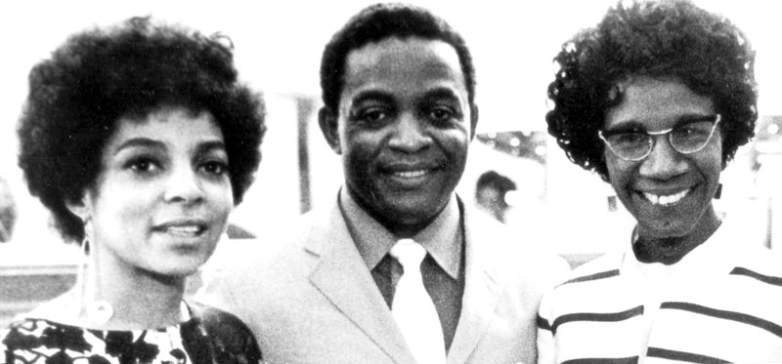
Burgie with Ruby Dee and Shirley Chisholm
Irving Burgie made some $20 million dollars over fifty years from his music by the time he was in his thirties, as he told NPR. He put the money to good use. Irving Burgie aligned himself with making the world a better place. He was active in the civil rights movement and visibly supported the movement as well as those who made a difference, including Shirley Chisolm, the first African-American woman in Congress.
He supported his alma maters with the Irving Burgie Scholarship programs, according to the New York Daily News.
Burgie funded a magazine based in Harlem called The Urbanite, in 1960, according to KCUR. Byron Lewis worked with Burgie at The Urbanite. Lewis later started one of the country’s first black-owned advertising agencies. Lewis says of the composer, as reported in NPR. “Burgie is an unsung hero…I feel that his life really should be memorialized because he represents what you can accomplish, particularly if you’re a person of color.”
READ NEXT: Laurel Griggs: Broadway Actress Dies at 13